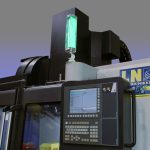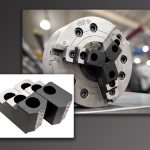Leveraging peer relationships
Leveraging peer relationships
As we climb out of the winter grind, we've all had our share of weighty issues to manage.
As we climb out of the winter grind, we've all had our share of weighty issues to manage. The longer days are a welcome sign we'll be able to capture some sunshine and vitamin D after work!
Fortunately, business has been better for most machine shops, but proficient management is still a necessity to succeed in this minefield of a global economy. A machine shop can be a handful and staying focused and motivated can be mentally draining on a manager or owner. Issues like cash flow, employee drama, equipment maintenance, taxes, safety, quality programs and bad customer drawings make this not exactly a 9-to-5 cubicle job.
Maintaining confidence and professionalism through all this is critical and your mental toughness will be tested. One way to stay inspired is to maintain a network of peers and leverage opportunities to discuss and vent about these issues. This group may or may not include fellow machine shop managers, but should be an assortment of professionals with unique perspectives.
During the winter, it's easy to become immersed in your shop bubble, barely aware of anything outside. You can be so busy managing others that you forget your own motivational needs.
Find events, peer groups, trade shows and other functions to get out of the shop every now and then. For example, in February, a machine tool dealer invited me to a luncheon presentation by Okuma America CEO Larry Schwartz, which was his last speaking engagement before retiring at the end of March. While I could have declined the invitation because we were busy, I decided to check it out. It was well worth it and a good example of why it's OK to come out of the cave. Hearing his insights was not only motivational but useful. I left with a renewed sense of enthusiasm by being around people who were conversational and willing to brainstorm about shop life.
Another way I've been able to leverage such relationships is through a monthly business owners roundtable group. This group of about 20 was specifically chosen by its organizers, two retired executives, to ensure no two people are competitors, just peers who can confide in one another about their lives and work matters. The discussions provide me with fresh ideas for nothing more than an obligation to reciprocate by offering my own insights and knowledge. Because a manufacturing operation encompasses all facets of business, you don't want to reinvent the wheel any more than necessary. These types of relationships can prevent such head-scratching scenarios by offering solutions that have already worked. Other owners understand my obstacles and I'm looking forward to the next meeting.
However, a formal group setting isn't always required. Our town has a restaurant that hosts business functions and is a well-known hangout for the local business crowd, including medical, IT, manufacturing and engineering professionals. It's easy to meet, converse and build low-stress but potentially useful relationships with acquaintances—if not long-lasting friendships. I found most people are eager to share their knowledge and warn you about potential pitfalls.
Perhaps a trade show like IMTS is a venue to leverage such relationships. I enjoy networking there myself. Whatever manner you choose, remember that networking can offer relief from the manufacturing grind and the blinders it can create. An effective manager needs motivation outside of the shop, and friendly people in a relaxed atmosphere are a great source for that. It's good therapy. Most are supportive and will keep you pumped up. Be open to receiving advice and encouragement from your peers and willing to provide it for others.





